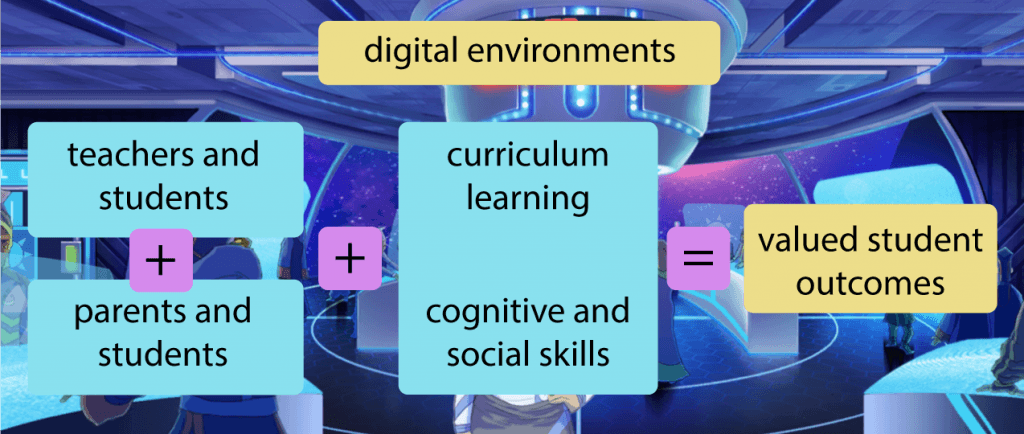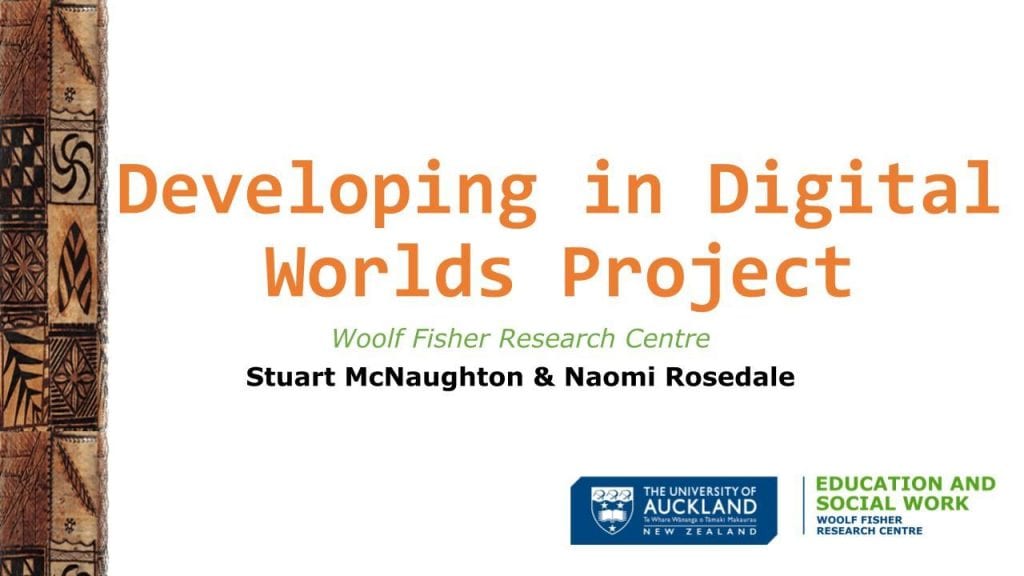
Recently, the Developing in Digital Worlds research team presented at the annual hui of the project’s digitally experienced school cluster. Having collected data from students, teachers and parents in the profiling phase via questionnaires, observations, and discussion board activities, it was our chance to give back by sharing and discussing the findings.
The presentation began with a simple question. Looking seven years forward, the presenters asked, what would it take for 21st century skills to underpin innovation across the curriculum? They offered specifics: what would it take for three sets of 21st century skills to underpin learning improvement and innovation: intrapersonal skills (self-control), interpersonal skills (empathy, perspective-taking, collaboration), and cognitive skills (critical thinking, critical literacy, and argumentation)? As the presenters explained, the Developing in Digital Worlds project is exploring links between these three sets of skills and student outcomes. Moreover, since digital environments provide further opportunities for students to develop these sets of 21st century skills, the link between the skills, digital environments, and student achievement is of even more importance. But consistent effects will depend on teacher augmentation.
 The Developing in Digital Worlds team then presented a series of findings:
The Developing in Digital Worlds team then presented a series of findings:
- Using well known measures of personality and of more specific behaviours, the research team looked into whether innovating with digital environments and pedagogy over a long period does impact on children’s development of cognitive and social skills. Initial findings are that four out of five personality dimensions (openness, conscientiousness, agreeableness, extraversion) had stronger ratings by students in the digitally experienced cluster, suggesting that curriculum innovation with digital tools can impact on some aspects of children’s social skills. Other analyses are looking more closely at possible effects on the range of social skills, and the picture that is emerging is that impact is particularly noticeable with areas of self-control (or agency).
- According to teacher questionnaires collected by the research team, new digital tools do provide more opportunities to promote the three sets of 21st century skills. The classroom observations confirmed that teachers in digitally experienced schools are already building instruction around these skills, but that there is more emphasis on the development of social skills than cognitive skills.
- Argumentation findings suggest that students face difficulty integrating others’ perspectives to inform their reasoning and decision making. The research team showed how teachers in the school clusters have been creating new ways of supporting dialogic argumentation in response to these findings.
- In response to limited classroom opportunities for critical literacy practice, the Developing in Digital Worlds team designed the game Astria: Countdown to Impact to provide students with a collaborative game experience. The most recent version of the game gives greater opportunities for teachers to consult analytics and augment their guidance.
- Updates were given on the design of a Connecting Home & The Schools (CHATS) intervention programme, and the associated Learning@Home website resource. The intervention is being piloted in three classrooms in response to findings from whānau questionnaire responses requesting a) more regular reminders to have learning conversations with students about school learning and cybersmart issues; b) connection with teachers and the school to align digital learning practices at home with the classroom. Future analyses of these data will assist whānau to support their children’s learning in digital worlds and in particular, development of 21st century skills.
To view the full presentation, click on the slide deck below:

